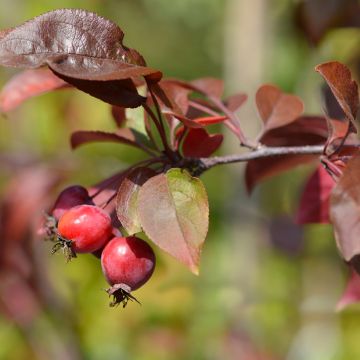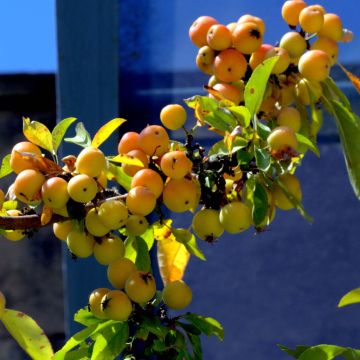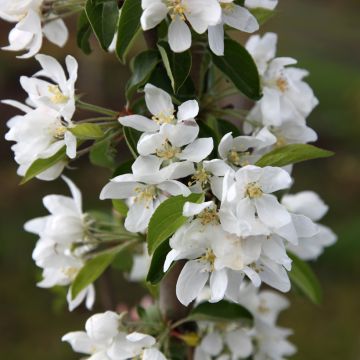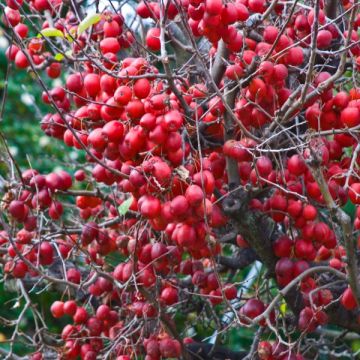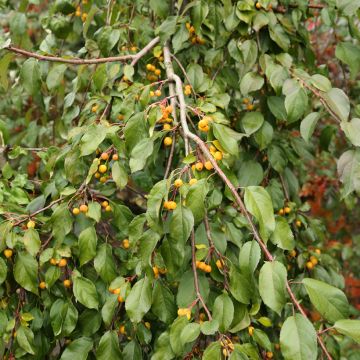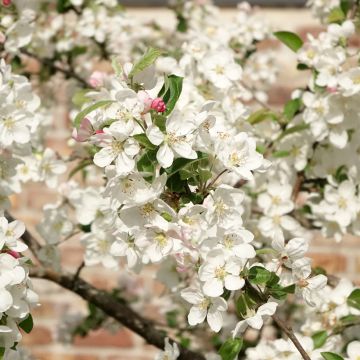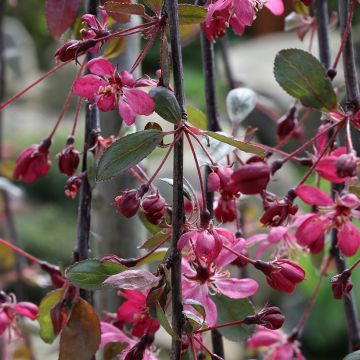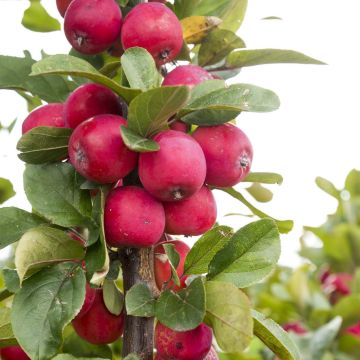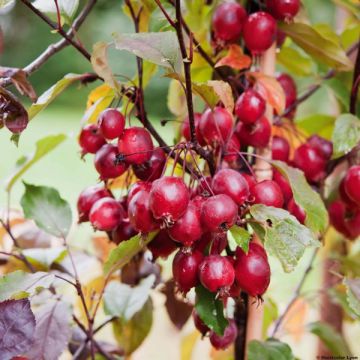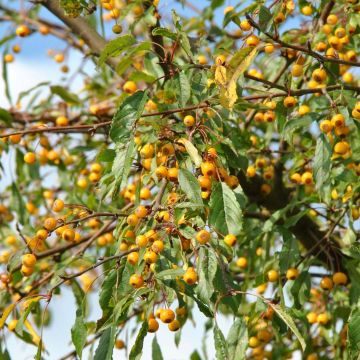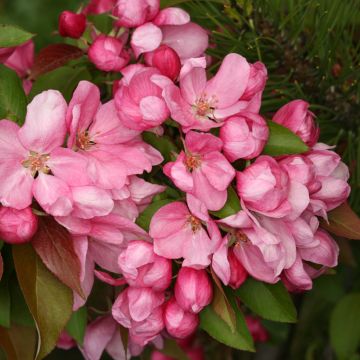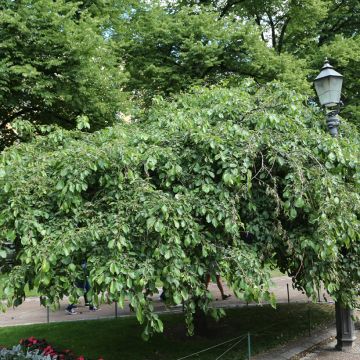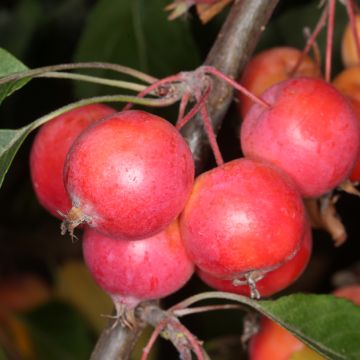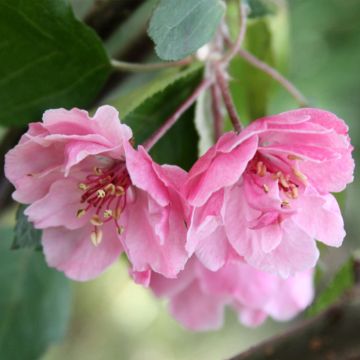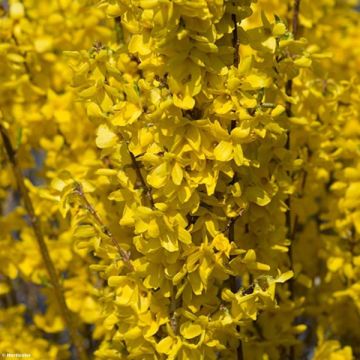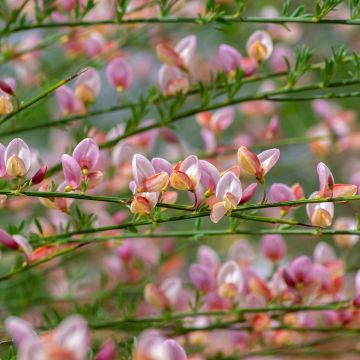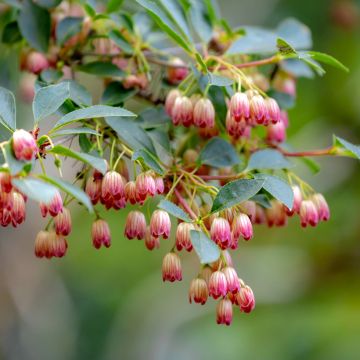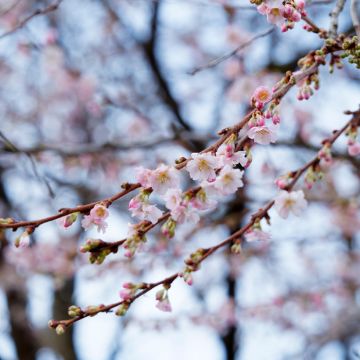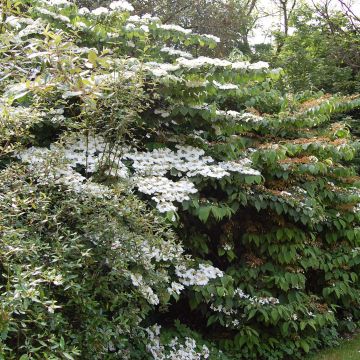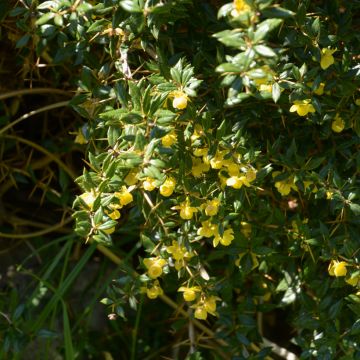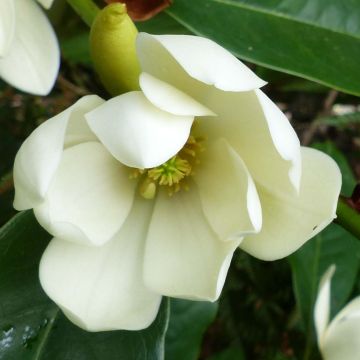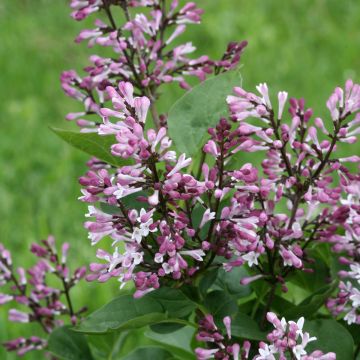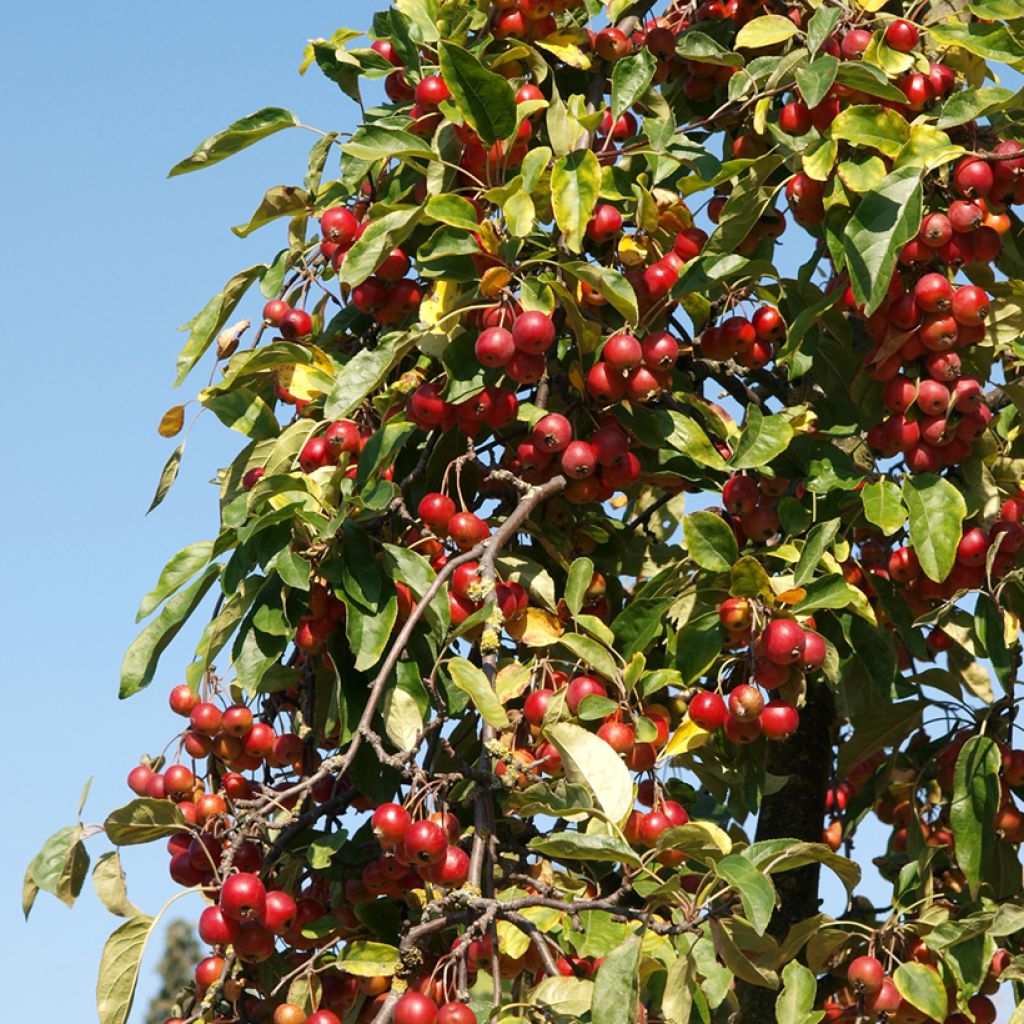

Malus sieversii - Wild Apple
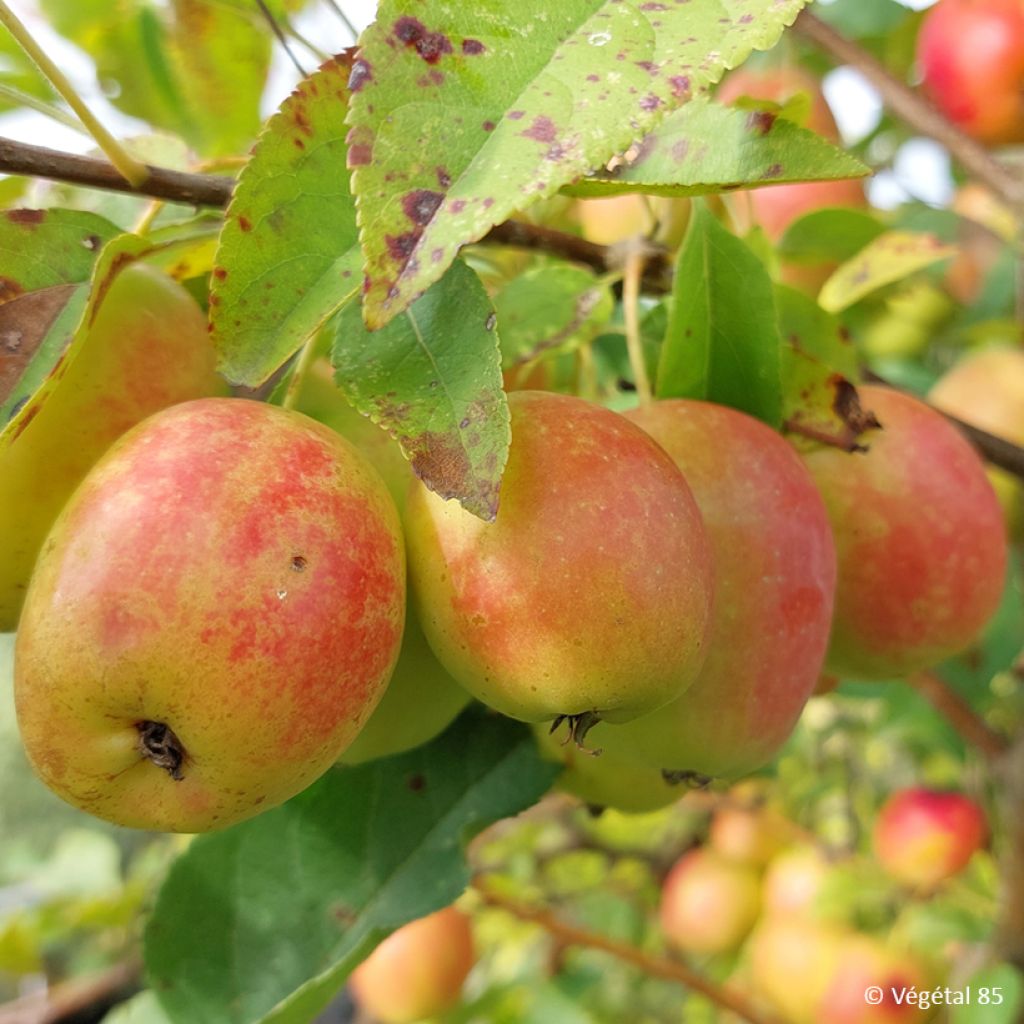

Malus sieversii - Wild Apple
Malus sieversii - Wild Apple
Malus sieversii
Wild Apple, Asian Wild Apple, Sievers' Apple
Special offer!
Receive a €20 voucher for any order over €90 (excluding delivery costs, credit notes, and plastic-free options)!
1- Add your favorite plants to your cart.
2- Once you have reached €90, confirm your order (you can even choose the delivery date!).
3- As soon as your order is shipped, you will receive an email containing your voucher code, valid for 3 months (90 days).
Your voucher is unique and can only be used once, for any order with a minimum value of €20, excluding delivery costs.
Can be combined with other current offers, non-divisible and non-refundable.
Why not try an alternative variety in stock?
View all →This plant carries a 24 months recovery warranty
More information
We guarantee the quality of our plants for a full growing cycle, and will replace at our expense any plant that fails to recover under normal climatic and planting conditions.
Would this plant suit my garden?
Set up your Plantfit profile →
Description
The Malus sieversii, sometimes called the wild apple tree from Kazakhstan, is a fascinating species of fruit tree, known to be the direct ancestor of the modern domestic apple tree (Malus domestica). This species plays a key role in preserving the genetic diversity of the apple trees we plant in orchards or gardens. It is interesting for its great resistance to extreme climatic conditions and diseases, qualities used in breeding programs. In the garden, this wild apple tree can be grown for ornamental purposes, as a pollinator, or for its tart apples.
The wild apple tree, like other botanical species of the Malus genus, belongs to the Rosaceae family. The sieversii species is mainly found in the Tian Shan mountains, at an altitude of 1100 to 2400 meters, in Central Asia. Its distribution area includes Kazakhstan, Kyrgyzstan, Tajikistan, and the Chinese province of Xinjiang. This mountainous region of Tian Shan, which forms natural barriers, has allowed Malus sieversii to thrive in entire forests of wild apple trees. There is thus a great genetic diversity within this species. This wild apple tree is the unique ancestor of the vast majority of domestic apple tree varieties.
The Malus sieversii is a tree that can reach 10 to 14 m in height, with a broad and spreading crown. Its bark is greyish, and its young branches are often tinged with red. The leaves, elliptical to ovate in shape, measure between 6 and 11 cm in length and are slightly villous underneath. Its flowers, white to slightly pinkish, appear in May, measuring 3 to 4 cm in diameter. They are clustered in small corymbs and have numerous yellow stamens. The fruits of Malus sieversii, ranging from yellow to red, vary in shape and size (3 to 8 cm in diameter). They are often more acidic than commercial apples but entirely edible. The fruiting period extends from August to October. This species is known for its high resistance to diseases such as apple scab and fire blight, as well as to harmful insects like the apple maggot.
The fruits of this tree can be consumed in various ways. When freshly picked, they offer a unique taste experience, ranging from sweet to very acidic depending on the tree they come from. They are perfect for making jams, jellies, and compotes due to their high pectin content, which facilitates their transformation into spreadable products. Their natural acidity adds an interesting contrast to savoury-sweet dishes or desserts like pies or baked apples. These wild apples can also be pressed for juice or fermented to make a rustic cider, although less sweet than that from domestic apples. Furthermore, the fruits of this tree are also highly appreciated by local wildlife, especially birds, which is beneficial in a garden focused on biodiversity.
The Malus sieversii, like flowering apple trees, is a good pollinator for fruit trees like ‘Golden Delicious’, ‘Granny Smith’, ‘Jonathan’, or even flowering apple trees like the Japanese crab apple tree Malus floribunda 'Perpetu Evereste'. The latter will benefit from its pollen to produce more abundant and higher quality fruits. With its beautiful spring blossoms and lovely apples, it will be decorative for much of the year. It will find its place in a medium to large garden, as a single specimen or in a free hedge.
Report an error about the product description
Plant habit
Flowering
Foliage
Botanical data
Malus
sieversii
Rosaceae
Wild Apple, Asian Wild Apple, Sievers' Apple
Malus domestica, Malus sylvestris var. domestica, Malus malus, Malus pumila var. domestica, Malus niedzwetzkyana
Central Asia
Other Malus - Crabapple
View all →Planting and care
The Malus sieversii is a robust wild apple tree, but to ensure its optimal growth, certain growing conditions must be respected. It prefers a well-drained soil, rich in nutrients and slightly acidic to neutral. Although it tolerates heavy, clay soils, it thrives best in fertile and humus-bearing soil. Full sun exposure is ideal to promote its flowering and fruiting.
When it comes to watering, although it is quite drought-tolerant once well established, this apple tree benefits from regular watering during the first years of planting, especially in prolonged dry periods. Its cold resistance is one of its major assets: it can withstand temperatures dropping to -28°C, making it perfectly suited to montane climates or regions with harsh winters.
During planting, make sure to space the trees at least 4 to 6 m apart to allow them to spread properly, considering that the tree can reach a span of 6 to 8 m at maturity. Lastly, although Malus sieversii is resistant to several diseases such as scab and fire blight, it may be susceptible to certain fungi like honey fungus, so keep an eye out for signs of infestation.
Planting period
Intended location
Care
This item has not been reviewed yet - be the first to leave a review about it.
Similar products
Haven't found what you were looking for?
Hardiness is the lowest winter temperature a plant can endure without suffering serious damage or even dying. However, hardiness is affected by location (a sheltered area, such as a patio), protection (winter cover) and soil type (hardiness is improved by well-drained soil).

Photo Sharing Terms & Conditions
In order to encourage gardeners to interact and share their experiences, Promesse de fleurs offers various media enabling content to be uploaded onto its Site - in particular via the ‘Photo sharing’ module.
The User agrees to refrain from:
- Posting any content that is illegal, prejudicial, insulting, racist, inciteful to hatred, revisionist, contrary to public decency, that infringes on privacy or on the privacy rights of third parties, in particular the publicity rights of persons and goods, intellectual property rights, or the right to privacy.
- Submitting content on behalf of a third party;
- Impersonate the identity of a third party and/or publish any personal information about a third party;
In general, the User undertakes to refrain from any unethical behaviour.
All Content (in particular text, comments, files, images, photos, videos, creative works, etc.), which may be subject to property or intellectual property rights, image or other private rights, shall remain the property of the User, subject to the limited rights granted by the terms of the licence granted by Promesse de fleurs as stated below. Users are at liberty to publish or not to publish such Content on the Site, notably via the ‘Photo Sharing’ facility, and accept that this Content shall be made public and freely accessible, notably on the Internet.
Users further acknowledge, undertake to have ,and guarantee that they hold all necessary rights and permissions to publish such material on the Site, in particular with regard to the legislation in force pertaining to any privacy, property, intellectual property, image, or contractual rights, or rights of any other nature. By publishing such Content on the Site, Users acknowledge accepting full liability as publishers of the Content within the meaning of the law, and grant Promesse de fleurs, free of charge, an inclusive, worldwide licence for the said Content for the entire duration of its publication, including all reproduction, representation, up/downloading, displaying, performing, transmission, and storage rights.
Users also grant permission for their name to be linked to the Content and accept that this link may not always be made available.
By engaging in posting material, Users consent to their Content becoming automatically accessible on the Internet, in particular on other sites and/or blogs and/or web pages of the Promesse de fleurs site, including in particular social pages and the Promesse de fleurs catalogue.
Users may secure the removal of entrusted content free of charge by issuing a simple request via our contact form.
The flowering period indicated on our website applies to countries and regions located in USDA zone 8 (France, the United Kingdom, Ireland, the Netherlands, etc.)
It will vary according to where you live:
- In zones 9 to 10 (Italy, Spain, Greece, etc.), flowering will occur about 2 to 4 weeks earlier.
- In zones 6 to 7 (Germany, Poland, Slovenia, and lower mountainous regions), flowering will be delayed by 2 to 3 weeks.
- In zone 5 (Central Europe, Scandinavia), blooming will be delayed by 3 to 5 weeks.
In temperate climates, pruning of spring-flowering shrubs (forsythia, spireas, etc.) should be done just after flowering.
Pruning of summer-flowering shrubs (Indian Lilac, Perovskia, etc.) can be done in winter or spring.
In cold regions as well as with frost-sensitive plants, avoid pruning too early when severe frosts may still occur.
The planting period indicated on our website applies to countries and regions located in USDA zone 8 (France, United Kingdom, Ireland, Netherlands).
It will vary according to where you live:
- In Mediterranean zones (Marseille, Madrid, Milan, etc.), autumn and winter are the best planting periods.
- In continental zones (Strasbourg, Munich, Vienna, etc.), delay planting by 2 to 3 weeks in spring and bring it forward by 2 to 4 weeks in autumn.
- In mountainous regions (the Alps, Pyrenees, Carpathians, etc.), it is best to plant in late spring (May-June) or late summer (August-September).
The harvesting period indicated on our website applies to countries and regions in USDA zone 8 (France, England, Ireland, the Netherlands).
In colder areas (Scandinavia, Poland, Austria...) fruit and vegetable harvests are likely to be delayed by 3-4 weeks.
In warmer areas (Italy, Spain, Greece, etc.), harvesting will probably take place earlier, depending on weather conditions.
The sowing periods indicated on our website apply to countries and regions within USDA Zone 8 (France, UK, Ireland, Netherlands).
In colder areas (Scandinavia, Poland, Austria...), delay any outdoor sowing by 3-4 weeks, or sow under glass.
In warmer climes (Italy, Spain, Greece, etc.), bring outdoor sowing forward by a few weeks.






























